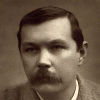“ our imagination is dulled rather than stimulated by too woeful a narration, and our minds rebound from what is felt "too bad to be true." ”
John Maynard Keynes, The Economic Consequences of the Peace (1919). copy citation
| Author | John Maynard Keynes |
|---|---|
| Source | The Economic Consequences of the Peace |
| Topic | imagination mind |
| Date | 1919 |
| Language | English |
| Reference | |
| Note | |
| Weblink | http://www.gutenberg.org/files/15776/15776-h/15776-h.htm |
Context
“and we may make the error of expecting consequences to follow too swiftly and too inevitably from what perhaps are not _all_ the relevant causes. The blackness of the prospect itself leads us to doubt its accuracy; our imagination is dulled rather than stimulated by too woeful a narration, and our minds rebound from what is felt "too bad to be true." But before the reader allows himself to be too much swayed by these natural reflections, and before I lead him, as is the intention of this chapter, towards remedies and ameliorations and the discovery of happier tendencies, let him redress the balance of his thought by recalling two contrasts--England and Russia, of which the one may encourage his optimism too much, but the other should remind him that catastrophes can still happen, and that modern society is not immune from the very greatest evils.”
source


